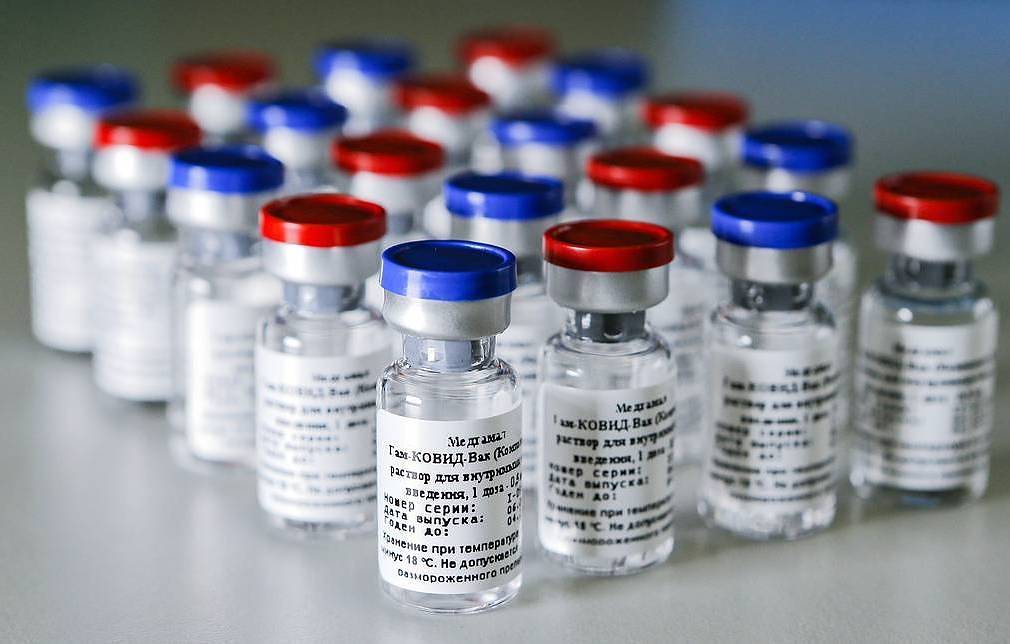
‘Nigeria Expecting 16m Doses Of COVID-19 Vaccine’
The World Health Organisation, WHO, had said a total of 16 million AstraZeneca doses of COVID-19 vaccines out of the 88 million allocated to Africa will soon arrive in the country.
This was as the organisation explained that it has not disqualified any country in Africa from accessing COVID-19 vaccines through the COVAX facility, but rather is supporting all countries to access vaccines as quickly as possible.
The WHO Country Representative in Nigeria, Dr Walter Kazadi Mulomboo, said these at a joint press conference with the Executive Director, National Primary Health Care Development Agency, NPHCDA, Dr Faisal Shuaib, in Abuja, Saturday.
Reacting to the purported disqualification of Nigeria from access COVID 19 vaccines, the WHO representative insisted that “WHO has not disqualified any country in Africa from accessing COVID-19 vaccines through the COVAX facility, but rather is supporting all countries to access vaccines as quickly as possible.”
“Of the 88 million AstraZeneca doses allocated to African countries for the first phase, Nigeria has received by far the largest allocation, with 16 million doses,” he said.
He disclosed that: “Currently, all countries on the continent are expected to start accessing the AstraZeneca/Oxford vaccines by the end of February.”
“The vaccine is under review by WHO for Emergency Use Listing and the outcome is expected soon,” he added.
He spoke further: “In addition to the Astra Zeneca doses, there is an initial limited volume of Pfizer vaccine available through COVAX.” According to him, the “Demand for the initial allocation of 1.2 million Pfizer doses was exceptionally high. ” “COVAX received interest from 72 countries around the world, of which 51 countries were considered by the review committee as “ready” (Nigeria was among these countries) and 18 countries in total were finally chosen to receive initial Pfizer doses,” he said.
He spoke further: ”On the Africa continent, as of the 18 January deadline, COVAX received 13 submissions and a multi-agency committee evaluated the proposals of which 9 were recommended as ready to deploy the Pfizer vaccine including Nigeria.
“Unfortunately, it was not feasible to provide each of these 51 countries with Pfizer doses, due to a number of factors including the limited capacity for Pfizer to handle many countries at once. Therefore, spreading the limited doses across all the 51 countries deemed ‘ready’. could have not achieved the intended public health benefit.
“After epidemiological data was taken into account, the decision was taken to proportionally balance the number of self-financing and AMC Participants, as well as Participants across all 6 WHO regions.”
On his part, the Executive Director of National Primary Health Care Development Agency explained that the press conference became “necessary in order to ensure that just a few of us do not bring our country to ridicule.”
He said: “As clearly stated by the WHO Regional Director, there are a number of factors that were considered in allocating the small quantity of the 320,000 doses of Pfizer vaccine to Covax countries.
‘These include the mortality rates from COVID-19, the number of new cases, the trend in the number of cases, the population of countries and the availability of the appropriate Cold Chain equipment.”
According to him,”It is clear that countries such as South Africa which received the Pfizer allocation have the new strain of the COVID-19 virus, has the highest mortality rates and is struggling to contain transmission.”
He spoke further:”Furthermore, giving smaller countries such as Cape Verde and Rwanda few doses of the Pfizer vaccine would have a larger public health impact considering their population size. 100,000 doses to Nigeria, we have all agreed would have been a drop in the ocean.
‘So, it is a welcome development that we are receiving 16m doses of the Astrazeneca vaccine to replace the Pfizer vaccine in the same month of February. The 16m doses will invariably help us reach more of our population and is suited to our existing cold chain system.”



